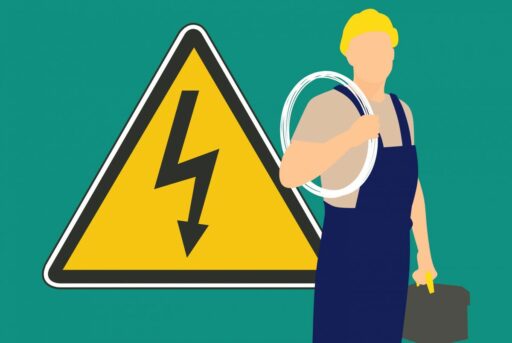The North Carolina (NC) State Board of Electrical Contractors is a pivotal organization that oversees the licensing, regulation, and education of electrical contractors within the state. It serves as a resource for professionals in the electrical industry, ensuring that they meet the necessary qualifications and adhere to the state’s safety standards. This article provides a comprehensive overview of navigating the NC State Board of Electrical Contractors, covering everything from understanding its role to exploring career opportunities in the field.
Key Takeaways
- The NC State Board of Electrical Contractors is responsible for the licensing and regulation of electrical professionals, ensuring public safety and compliance with state laws.
- Electrical contractors in NC must meet continuing education requirements and adhere to specific license renewal procedures to maintain their professional standing.
- The Board offers various resources and support, including online services, public search capabilities, and guidance for both new and existing contractors.
- Recent legislative updates, such as changes to building energy conservation rules and the implications of IECC 2021, have significant impacts on the electrical contracting industry.
- Career opportunities for electricians in North Carolina are promising, with competitive salary trends and various resources for job listings and career advancement.
Understanding the Role of the NC State Board of Electrical Contractors

Mandate and Jurisdiction
The NC State Board of Electrical Contractors is the governing body responsible for overseeing the electrical contracting industry within North Carolina. Its primary role is to ensure public safety by regulating the qualifications and practices of electrical contractors. The Board’s jurisdiction extends to all individuals and businesses engaging in electrical contracting within the state.
Key responsibilities of the Board include:
- Establishing and maintaining standards for electrical contracting work
- Issuing licenses to qualified applicants
- Enforcing compliance with state electrical codes and regulations
The Board’s mandate does not constitute a federal intergovernmental mandate, and as such, does not impose requirements on State, local, or Tribal governments.
Compliance with the Board’s regulations is essential for maintaining a reputable electrical contracting business. Similar to the requirements in Chicago, where electrical contractor licensing necessitates documentation, education, insurance, and passing an exam, the NC Board mandates adherence to specific criteria to ensure the integrity and competence of electrical contractors operating in the state.
Licensing and Certification Process
The process of obtaining a license or certification from the NC State Board of Electrical Contractors is a critical step for professionals seeking to operate legally within the state. The Board emphasizes integrity, accountability, and safety standards in its procedures, aligning with the principles upheld by similar regulatory bodies, such as the Alabama Licensing Board for General Contractors.
To become a licensed electrical contractor in North Carolina, applicants must navigate through several stages, including meeting educational requirements, passing examinations, and submitting the necessary documentation. The following list outlines the key steps in the licensing process:
- Fulfilling the educational prerequisites or equivalent experience
- Completing the application form with accurate and up-to-date information
- Passing the required examination(s) for the specific license category
- Paying the associated fees
- Providing proof of insurance and bonding, if applicable
It is essential for applicants to ensure that all information provided is complete and accurate to avoid delays or rejections in the licensing process.
Once licensed, contractors must adhere to ongoing professional standards and participate in continuing education to maintain their license. This commitment to professional development helps ensure that electrical contractors remain knowledgeable about the latest industry practices and regulatory changes.
Compliance and Enforcement
The NC State Board of Electrical Contractors ensures adherence to industry standards through rigorous compliance and enforcement measures. Formal enforcement is a critical tool to address and deter serious noncompliance within the electrical contracting sector. The Board’s strategic approach often involves collaboration with other agencies to effectively manage resources and focus on the most serious violations.
Maintaining compliance with all regulations is not only a legal requirement but also a cornerstone for the safety and reliability of electrical services provided to the community.
Enforcement actions can range from inspections and investigations to more severe penalties for noncompliance. Facilities subject to regulations may experience:
- Increased field presence by compliance officers
- Strategic enforcement actions to reduce noncompliance
- Enhanced compliance assistance to facilitate adherence to standards
It is essential for electrical contractors to understand that noncompliance can lead to significant consequences, including disciplinary actions. Staying informed about the latest compliance initiatives and actively engaging with the Board’s resources can help mitigate risks and ensure ongoing compliance.
Key Information for Electrical Professionals
Continuing Education Requirements
In North Carolina, electrical contractors must fulfill continuing education requirements to maintain their licenses and ensure they are up-to-date with the latest industry standards and safety regulations. These educational prerequisites are designed to uphold a high level of professionalism and technical knowledge within the field.
- Union electrical contractors prioritize continuous learning through upcoming classes and JATCs, ensuring a skilled workforce and industry standards.
- Membership in IBEW Local 595 offers comprehensive benefits for electricians, including access to required continuing education courses.
It is essential for electrical professionals to stay informed about the operation and maintenance requirements that apply to their work, as continuous compliance is a critical aspect of the profession.
Electrical contractors should regularly check with the NC State Board of Electrical Contractors for any updates to the continuing education requirements, as these can change in response to new legislation or industry developments.
License Renewal Procedures
The process of renewing an electrical contractor’s license in North Carolina is straightforward but requires attention to detail to ensure compliance with state regulations. Renewal fees and continuing education units (CEUs) are key components of the renewal process.
To maintain licensure, electrical contractors must acquire a certain number of Professional Development Hours (PDH) per renewal period. For instance, Professional Engineers are required to obtain 15 PDH units in accordance with 21 NCAC 56.1703. A $10 registration fee is typically required for events that provide PDH certificates.
It is essential for professionals to stay informed about the specific requirements for their license type and to complete the renewal process before the expiration date to avoid any lapse in licensure.
Below is a summary of the typical steps involved in the license renewal process:
- Verify the number of PDH units required for your license type.
- Attend approved events or courses to obtain the necessary PDH units.
- Pay the applicable renewal fee, which may vary based on the license category.
- Submit proof of PDH units and payment confirmation to the NC State Board of Electrical Contractors.
- Receive confirmation of license renewal.
Disciplinary Actions and Appeals
The NC State Board of Electrical Contractors takes disciplinary actions seriously, ensuring that all electrical professionals adhere to the established standards and regulations. Disciplinary actions can range from warnings to license revocation, depending on the severity of the misconduct. It is crucial for contractors to understand the potential consequences of non-compliance and the steps involved in the appeals process.
When facing disciplinary actions, contractors have the right to appeal decisions made by the Board. The appeals process is governed by the Administrative Procedure Act and involves several stages, including a potential hearing. It is important for contractors to be aware of the timelines and documentation required to file an appeal effectively.
The outcome of an appeal can significantly impact a contractor’s career, making it essential to approach the process with diligence and a clear understanding of the legal aspects involved.
Contractors seeking to appeal a disciplinary action should familiarize themselves with the following steps:
- Review the specific allegations and evidence presented by the Board.
- Gather necessary documentation and legal representation, if needed.
- Submit a formal appeal request within the stipulated timeframe.
- Prepare for a hearing, if one is scheduled, by organizing evidence and witness testimonies.
Understanding the nuances of disciplinary actions and the appeals process can help contractors navigate these challenges more effectively and maintain their professional standing.
Resources and Support for Stakeholders

Contact Details and Office Location
For professionals seeking to engage with the NC State Board of Electrical Contractors, having accurate contact details and knowing the office location is essential. The Board’s office can be reached at a dedicated phone number for inquiries, and they provide a TTY number for those who require it.
To visit or send correspondence, the Board’s office is located at:
- Street: 2920 Forestville Road
- City: Raleigh
- State: NC
- Zip Code: 27616
It is important to note that this is a multi-location business, and additional locations may be available for convenience. Should you require technical assistance or have specific questions, the Board designates a technical contact person who can provide detailed information and guidance.
Ensuring that you have the correct contact information is crucial for timely and effective communication with the Board.
Online Services and Public Search
The North Carolina State Board of Electrical Contractors provides a comprehensive suite of online services to facilitate public access and professional management. These services are designed to streamline various processes, from document searches to license verifications.
- Document Search: Easily locate and review official documents.
- Advanced Document Search: Filter results by specific criteria for targeted information.
- Public Inspection Search: Access public records and verify document authenticity.
The online platform is user-friendly and ensures that all stakeholders have immediate access to the information they need, contributing to transparency and efficiency in the electrical contracting industry.
Professionals can manage their profiles, track continuing education credits, and stay updated with the latest industry news. The public search feature is particularly useful for verifying the credentials of contractors, like those from CarolinaPower, known for their commitment to safety and quality.
Guidance for New and Existing Contractors
For those new to the North Carolina electrical contracting scene, understanding the nuances of the industry is crucial for success. Navigating the myriad of standard form contracts and ensuring compliance with state regulations can be daunting. It’s important to familiarize yourself with the different types of contracts available and the key factors to consider when selecting one.
Existing contractors should stay informed about the latest industry standards and legislative changes. Regularly consulting with legal counsel can help mitigate risks associated with regulatory compliance and contractual obligations. Additionally, leveraging online resources provided by the NC Licensing Board for General Contractors can streamline processes such as new license applications and licensee searches.
The NC State Board of Electrical Contractors offers comprehensive guidance and support to help both new and established professionals maintain compliance and thrive in the industry.
Remember, continuous education and staying abreast of industry news are pivotal in ensuring that your practices align with current standards and expectations.
Legislative Updates and Industry News

Recent Changes to Building Energy Conservation Rules
The 2021 International Energy Conservation Code (IECC) has ushered in significant advancements in building efficiency. Approved proposals are estimated to improve efficiency by 10% or more for both residential and commercial buildings adhering to the code. This leap forward is set to reduce overall building energy use, marking a pivotal step in energy conservation efforts.
The shift in North Carolina’s building code allows for a trade-off between traditional energy-saving measures and the adoption of renewable energy technologies. While this provides flexibility, it also raises concerns about the potential dilution of insulation and other fundamental energy-saving requirements.
The changes have sparked varied reactions among industry stakeholders, with some expressing support for the increased efficiency gains, while others critique the process changes that limit local voter influence in code development. The table below summarizes the key updates:
| Year | Update | Impact |
|---|---|---|
| 2021 | IECC efficiency improvements | Estimated 10%+ efficiency gain |
| 2021 | NC code trade-off policy | Flexibility vs. fundamental requirements |
| 2021 | Process changes | Reduced local voter influence |
These updates are crucial for professionals in the building industry to understand, as they directly affect the design and construction of new structures in North Carolina.
Implications of IECC 2021 for Architects
The 2021 update to the International Energy Conservation Code (IECC) presents significant changes that architects must integrate into their designs to ensure compliance. The new code aims for a 10% improvement in energy efficiency over previous versions, affecting various aspects of building design and construction.
Key changes include:
- Enhanced requirements for building envelopes
- Increased emphasis on renewable energy integration
- Mandates for electric vehicle-ready infrastructure
Architects will need to balance these stringent requirements with aesthetic and functional design goals. The IECC 2021 update underscores the industry’s shift towards sustainability and the pivotal role architects play in achieving energy conservation targets.
The adoption of IECC 2021 is a critical step for states and local governments in driving progress towards climate action goals and improving the health and comfort of building occupants.
Standard Form Contracts in North Carolina
In the construction industry, standard form contracts serve as the backbone for establishing clear agreements and expectations between parties. The selection of the appropriate standard form contract is crucial as it can significantly impact project outcomes and legal standings.
- AIA (American Institute of Architects)
- DBIA (Design-Build Institute of America)
- AGC (Associated General Contractors)
- EJCDC (Engineers Joint Contract Documents Committee)
These are some of the most commonly utilized standard form contracts in North Carolina. Each has its own set of terms, conditions, and clauses that cater to different aspects of construction and design projects.
It is essential for contractors and stakeholders to thoroughly review and revise standard form contracts to align with their specific project needs and legal requirements.
Choosing the right contract involves understanding the nuances and implications of each form. Factors such as scope of work, project duration, payment terms, and dispute resolution mechanisms should be carefully considered to ensure that the contract selected best fits the project’s requirements.
Career Opportunities and Job Market Insights

Salary Trends for Electricians in North Carolina
The electrician job market in North Carolina is dynamic, with salaries influenced by a range of factors including location, experience, and education. The average salary for an electrician at The University Of North Carolina At Charlotte is approximately $65,414 per year, with an hourly rate of about $31. This figure represents a competitive compensation within the state, particularly in the Charlotte area.
The salary range for electricians can vary significantly, reflecting the diverse opportunities and requirements across different regions and institutions within North Carolina.
Electricians considering employment at The University Of North Carolina At Charlotte should note that the salary range can extend from $57,727 to $73,175, depending on various factors such as departmental needs and individual qualifications. Here is a succinct breakdown of the salary range:
| Position | Average Salary (USD) | Salary Range (USD) |
|---|---|---|
| Electrician | $65,414 | $57,727 – $73,175 |
Understanding these trends is crucial for professionals seeking to navigate their career paths and negotiate salaries effectively.
Job Listings and Employer Information
For electrical professionals seeking employment in North Carolina, the job market offers a variety of opportunities. Employers range from educational institutions like the University of North Carolina at Charlotte to government and nonprofit organizations.
When searching for job listings, it’s crucial to ensure that the NAICS codes are up-to-date, as they can change over time. Employers and job seekers can refer to the official census website for the most current codes.
The job market in North Carolina is dynamic, with salary ranges reflecting the demand for skilled electricians. While the figures provided are estimates, they offer a guideline for expected compensation.
Here is a brief overview of the estimated salary range for electricians in North Carolina:
| Salary Range | Estimation |
|---|---|
| Low | $57,727 |
| Average | $65,414 |
| High | $73,175 |
It’s important for both employers and job seekers to engage in compensation planning and to understand the implications of pay equity. Resources like salary data sets and bonus calculators can be instrumental in developing competitive job descriptions and offers.
Career Development and Advancement
For electricians in North Carolina, career development and advancement are closely tied to ongoing education and staying abreast of industry innovations. Professional growth often requires a proactive approach, including seeking out additional certifications and training opportunities.
- Engage in continuous learning to master new technologies and methodologies.
- Network with industry professionals to discover new opportunities and collaborations.
- Take on leadership roles within projects to gain management experience.
Advancement in the electrical field is not just about technical skills; it also involves developing strong interpersonal and business acumen. Electricians who invest in their personal and professional development can expect to see their career prospects flourish.
Conclusion
Navigating the intricacies of the North Carolina State Board of Electrical Contractors is essential for professionals in the electrical industry. From understanding the licensing requirements to staying informed about changes in building energy conservation rules, this board plays a pivotal role in maintaining standards and ensuring safety. Whether you’re a new electrician in the state, a seasoned contractor, or someone involved in the broader engineering community, being aware of the board’s regulations, news, and events is crucial. As the industry evolves with technological advancements and legislative changes, staying connected with the NC State Board of Electrical Contractors means staying ahead in the competitive field of electrical contracting in North Carolina.
Frequently Asked Questions
What is the mandate and jurisdiction of the NC State Board of Electrical Contractors?
The NC State Board of Electrical Contractors is responsible for the licensing and regulation of electrical contractors in North Carolina. It ensures that electrical services are performed in compliance with state building codes and standards.
How can I apply for an electrical contractor license in North Carolina?
To apply for a license, you must meet the Board’s eligibility criteria, which may include specific educational and experience requirements. The application process typically involves submitting an application form, fees, and passing an examination.
What are the continuing education requirements for electrical contractors in NC?
Electrical contractors in North Carolina are required to complete continuing education courses to maintain their license. The number of hours and the type of courses required can vary, so it’s important to check with the Board for current requirements.
How do I renew my electrical contractor license in NC?
License renewal procedures usually involve submitting a renewal application, paying the renewal fee, and providing proof of continuing education credits. Renewals can often be done online through the Board’s website.
What should I do if I need to appeal a disciplinary action taken by the Board?
If you need to appeal a disciplinary action, you should review the Board’s guidelines for appeals and submit a written appeal request. It’s advisable to consult with legal counsel to understand your rights and the appeals process.
Where can I find the latest legislative updates and industry news relevant to electrical contractors in NC?
The latest legislative updates and industry news can be found on the Board’s website, through professional associations like the ASCE, or by subscribing to industry publications and newsletters.




